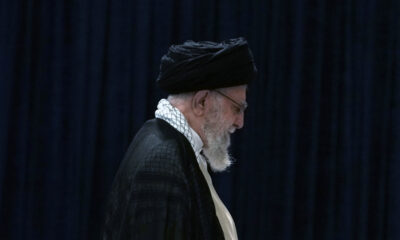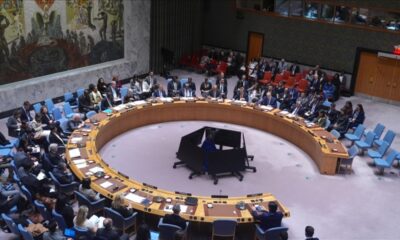Latest News
Study finds almost 80% of Afghan girls missing out on education
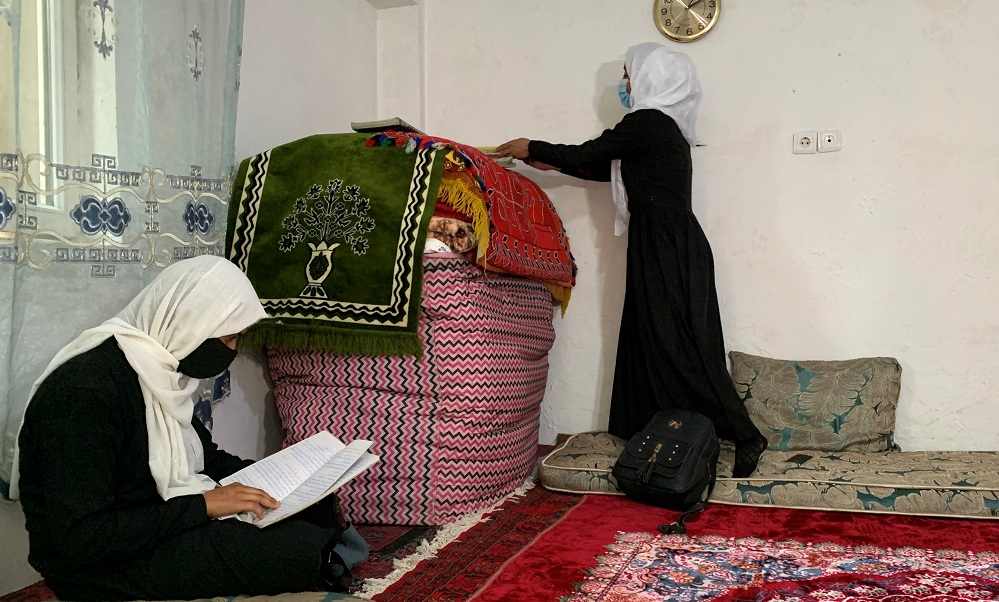
Almost 80% of Afghan girls are missing out on an education, Save the Children said Friday- almost a month after the Islamic Emirate of Afghanistan (IEA) issued a ban on teenage girls going to school.
A study by Save the Children, UNICEF and its Education Cluster partners has assessed who has returned to school in the past month across Afghanistan. The report shows the majority of secondary school girls – about 850,000 out of 1.1 million – are not attending classes.
Save the Children Afghanistan’s Acting Asia Regional Director, Olivier Franchi, said: “Girls were absolutely shattered last month when they arrived at classes – excited for the new school year – and were told to go home. Since then, Save the Children has spoken with girls who say they are depressed and heartbroken at being denied their fundamental right to learn.
“Education is a lifeline for all children, especially girls. Without it, they are at increased risk of violence, abuse, and exploitation, including early marriage. For the sake of girls’ survival in Afghanistan and for the future of the country, Save the Children is calling on the Taliban (IEA) to immediately allow girls of all ages to return to school. There is no issue – administrative, logistical or otherwise – that can possibly justify the continuation of a policy that denies girls access to their education.
“The international community also has an essential role to play and must continue to provide funding to support and protect girls who are still in school. The education system in Afghanistan is hanging by a thread and now is not the time to back away.”
Parvana (not her real name), 14, from Kabul province, is in grade seven. She hasn’t been able to attend formal schooling due to fears of violence but has instead been attending Save the Children-run community-based education classes. Parvana said: “When my brother was going to school and I couldn’t previously, I felt awful. All I wanted was to go to school, to study, to become someone in the future and make my family and the people from this area proud.
“Education is not only important for girls, but everyone should be educated. No one is born to stay at home. We are born to work hard, study and reach our goals.”
“These (Save the Children) classes can help girls left behind in their studies. Education is the most important thing in life. For my children, I hope they study and improve and get to live their dreams. For myself, I hope to become a good teacher and to serve the students of this society,” said one mother.
It’s estimated that almost 8 million school-aged children need support to access education right now in Afghanistan – an increase from 2.6 million compared to last year. Insecurity, poverty, cultural traditions, poor infrastructure, inadequate learning materials and a lack of qualified female and male teachers are continuing barriers to children accessing education.
To ensure children have still had access education during the last eight months, Save the Children has been running Community-Based Education classes and providing children and teachers with learning and classroom kits. The organisation has also been working with female secondary school graduates to support them to become teachers and to pass the university entrance exam.
Latest News
Haqqani and Syrian FM discuss situation in Afghanistan and Pakistan

Khalifa Sirajuddin Haqqani, Minister of Interior of the Islamic Emirate, held a telephone conversation with Asaad Hassan al- Shaibani, Minister of Foreign Affairs of Syria, regarding the situation in Afghanistan and Pakistan.
According to a statement from the Ministry of Interior, both sides emphasized the importance of strengthening relations between Afghanistan and Syria.
During the discussion, the two sides also talked about the latest regional developments.
Latest News
Afghan FM Muttaqi discusses Pakistan tensions with Qatari and Saudi officials

Foreign Minister of the Islamic Emirate of Afghanistan, Amir Khan Muttaqi, held separate phone calls with senior officials from Qatar and Saudi Arabia, focusing on the recent escalation between Afghanistan and Pakistan.
In his call with Qatar’s Minister of State for Foreign Affairs, Mohammed bin Abdulaziz Al-Khulaifi, Muttaqi said Afghanistan’s recent security actions were aimed at protecting sovereignty and territorial integrity. Qatar expressed support for reducing tensions and said it is ready to play a constructive role.
During his call with Saudi Foreign Minister Prince Faisal bin Farhan, Muttaqi praised Riyadh’s diplomatic efforts and reaffirmed Afghanistan’s desire for positive relations based on mutual respect. Saudi Arabia stressed de-escalation, dialogue, and respect for sovereignty as essential for resolving disputes.
Both Qatar and Saudi Arabia agreed to maintain ongoing contact and support diplomatic approaches to regional stability.
Latest News
Afghan forces conduct fresh airstrikes on Pakistani military targets
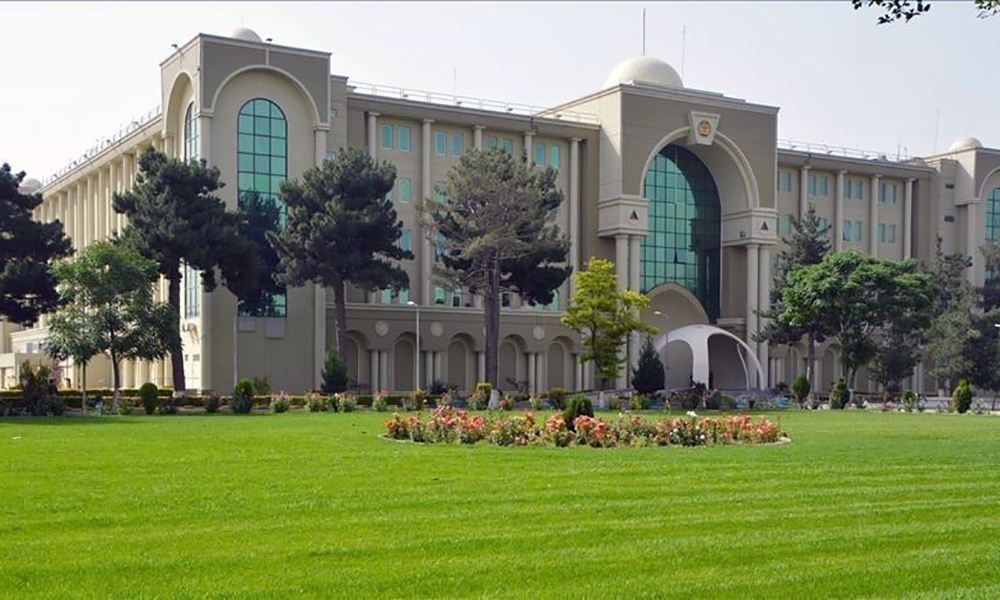
The Ministry of Defense of Afghanistan has announced that Afghan forces carried out fresh airstrikes on military targets in Miranshah and Spinwam, in Pakistan.
The strikes took place last night around 12:00 AM, according to the Ministry. In its statement, the Ministry said the Miranshah and Spinwam military bases were destroyed, resulting in heavy casualties.
The statement added that these “successful strikes were carried out in response to repeated air incursions by the Pakistani military regime.”
-

 Latest News2 days ago
Latest News2 days agoAfghan Air Force conducts airstrikes in Islamabad, other cities
-

 Latest News21 hours ago
Latest News21 hours agoPakistani military jet downed in Afghanistan’s Jalalabad, pilot captured alive
-
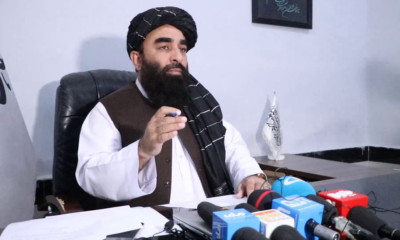
 Latest News2 days ago
Latest News2 days agoIEA: Special circle in Pakistan has launched mission to destabilize region
-

 Sport4 days ago
Sport4 days agoRichard Pybus appointed as head coach of Afghanistan’s national cricket team
-

 International Sports5 days ago
International Sports5 days agoAFC Champions League Elite gears up for Round of 16 as league stage concludes
-

 World3 days ago
World3 days agoIndia’s Modi backs Israel in address at Israeli parliament
-

 International Sports5 days ago
International Sports5 days agoWinter Olympics 2026 concludes with Norway on top of medal standings
-
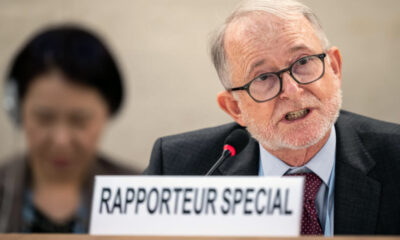
 Latest News5 days ago
Latest News5 days agoBennett expresses concern over civilian casualties in Pakistani airstrikes on Afghanistan


